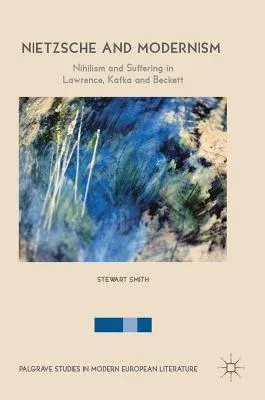Stewart Smith
(Author)Nietzsche and Modernism: Nihilism and Suffering in Lawrence, Kafka and Beckett (2018)Hardcover - 2018, 18 May 2018

Qty
1
Turbo
Ships in 2 - 3 days
In Stock
Free Delivery
Cash on Delivery
15 Days
Free Returns
Secure Checkout

Part of Series
Palgrave Studies in Modern European Literature
Print Length
236 pages
Language
English
Publisher
Palgrave MacMillan
Date Published
18 May 2018
ISBN-10
331975534X
ISBN-13
9783319755342
Description
Product Details
Author:
Book Edition:
2018
Book Format:
Hardcover
Country of Origin:
NL
Date Published:
18 May 2018
Dimensions:
21.01 x
14.81 x
1.6 cm
Genre:
20th Century
ISBN-10:
331975534X
ISBN-13:
9783319755342
Language:
English
Location:
Cham
Pages:
236
Publisher:
Weight:
449.06 gm